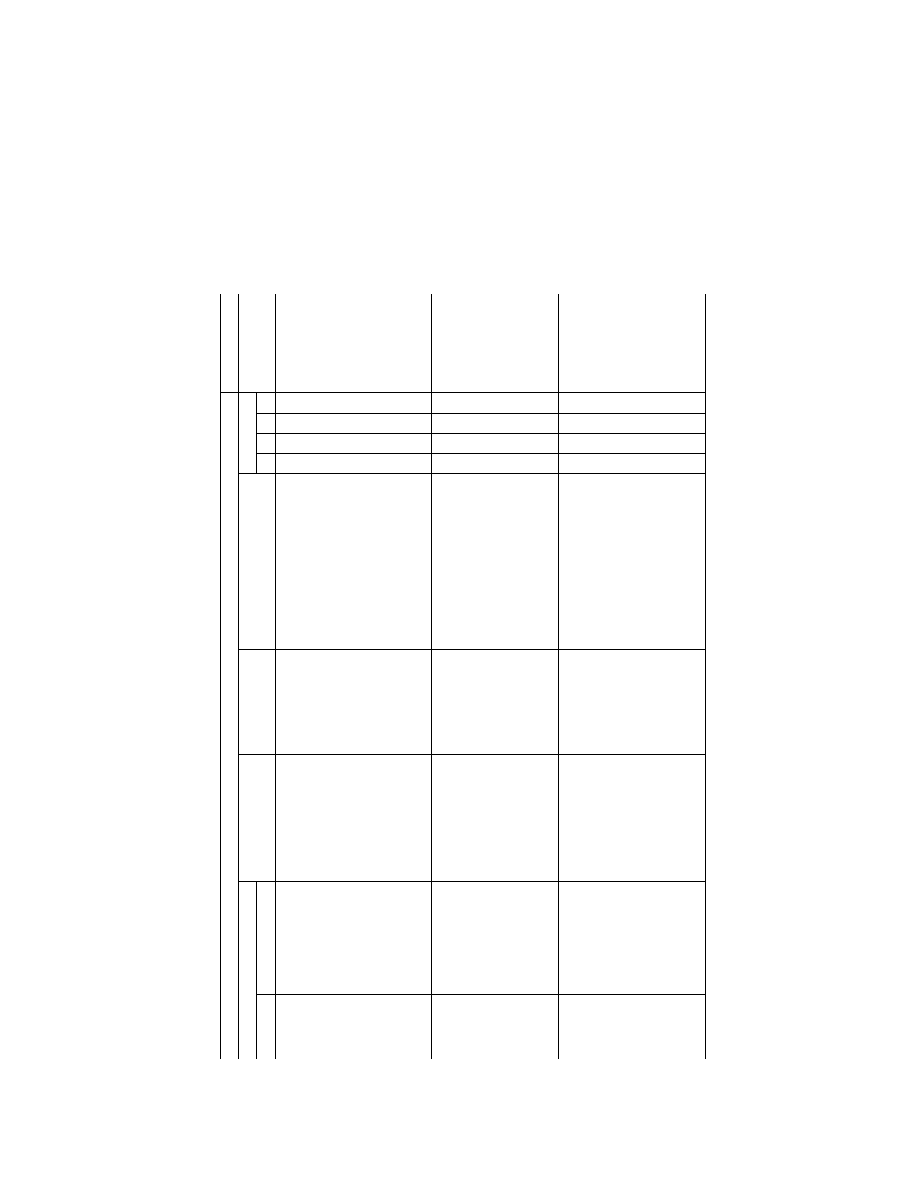
56
14 CFR Ch. I (1–1–14 Edition)
Pt. 60, App. A
T
ABLE
A2A—F
ULL
F
LIGHT
S
IMULATOR
(FFS) O
BJECTIVE
T
ESTS
—Continued
QPS Requirements
Information
Test
Tolerance
Flight conditions
Test details
Simulator level
Notes
Entry No.
Title
A B
C
D
2.c.6.
.............
Longitudinal Maneuvering
Stability (Stick Force/g).
±
5 lb (
±
2.2 daN) or
±
10%
pitch controller force. Al-
ternative method:
±
1
°
or
±
10% change of elevator.
Cruise, Approach, and
Landing.
Continuous time history data or a series
of snapshot tests may be used.
Record results up to 30
°
of bank for
approach and landing configurations.
Record results for up to 45
°
of bank
for the cruise configuration. The force
tolerance is not applicable if forces are
generated solely by the use of air-
plane hardware in the FFS. The alter-
native method applies to airplanes that
do not exhibit ‘‘stick-force-per-g’’ char-
acteristics.
CCA: Test in normal and non-normal
control states.
X X X X
2.c.7.
.............
Longitudinal Static Sta-
bility.
±
5 lb (
±
2.2 daN) or
±
10%
pitch controller force. Al-
ternative method:
±
1
°
or
±
10% change of elevator.
Approach
.....................
Record results for at least 2 speeds
above and 2 speeds below trim speed.
May be a series of snapshot test re-
sults. The force tolerance is not appli-
cable if forces are generated solely by
the use of airplane hardware in the
FFS. The alternative method applies
to airplanes that do not exhibit speed
stability characteristics.
CCA: Test in normal or non-normal con-
trol states.
X X X X
2.c.8.
.............
Stall Characteristics
........
±
3 kt airspeed for initial buf-
fet, stall warning, and stall
speeds.
±
2
°
bank for
speeds greater than stick
shaker or initial buffet. Ad-
ditionally, for those sim-
ulators with reversible
flight control systems:
±
10% or
±
5 lb (2.2 daN)
Stick/Column force (prior
to ‘‘g break’’ only).
Second Segment
Climb, and Approach
or Landing.
The stall maneuver must be entered with
thrust at or near idle power and wings
level (1g). Record the stall warning
signal and initial buffet, if applicable.
Time history data must be recorded
for full stall and initiation of recovery.
The stall warning signal must occur in
the proper relation to buffet/stall. FFSs
of airplanes exhibiting a sudden pitch
attitude change or ‘‘g break’’ must
demonstrate this characteristic.
CCA: Test in normal and non-normal
control states.
X X X X
VerDate Mar<15>2010
20:48 Jan 30, 2014
Jkt 232047
PO 00000
Frm 00066
Fmt 8010
Sfmt 8002
Q:\14\14V2.TXT
ofr150
PsN: PC150